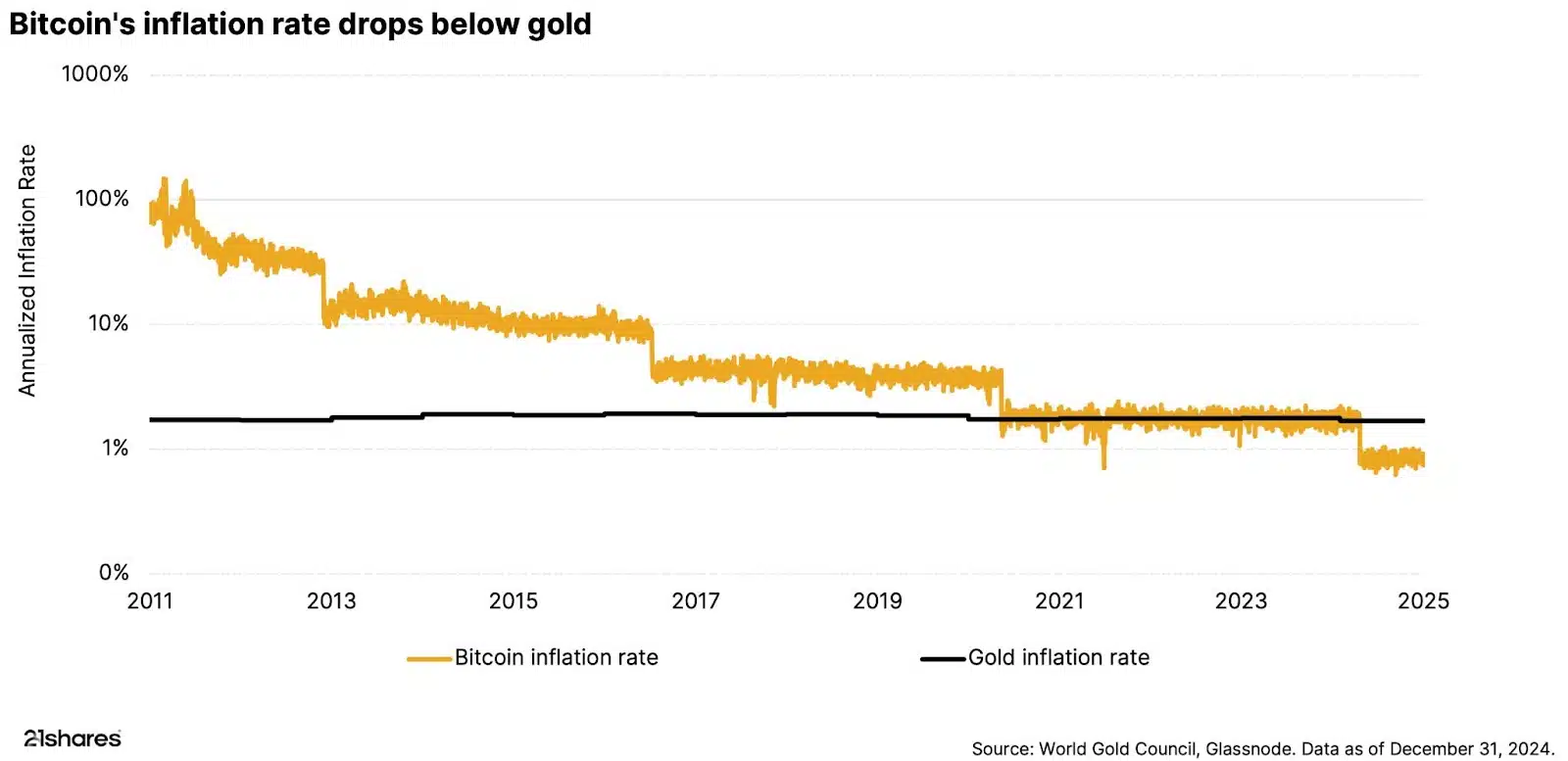When markets get shaky, investors scramble for a port in the storm. For generations, that safe harbour was almost always gold. Today, two digital newcomers are vying for that title – Gold that’s been converted into tradable tokens, and the original cryptocurrency – Bitcoin.
Examining what makes an asset truly safe shows how these new options both fit and break the old mold.
A real safe haven is supposed to zig when the rest of the market zags. As investors panic-sell their stocks, they should be able to pile into these assets to protect their money or even see it grow. To earn that trust, an asset needs a few key qualities. You must be able to sell it quickly without crashing the price.
Its supply can’t be something that can be inflated into worthlessness overnight. There needs to be a steady, broad base of people who want it, and it shouldn’t be something that can rot, rust, or become obsolete. Having a long track record of being useful and accepted certainly helps build its case.
All that glitters may be gold…
Gold’s resume for this job is long and storied.
During the 2008 financial meltdown, for example, gold prices climbed as the S&P 500 cratered, showing that perfect inverse relationship. We saw a similar flight to safety during the initial chaos of the COVID-19 pandemic. Its reputation is built on solid ground – It’s liquid, with a price recognized worldwide, new supply is limited and expensive to mine, demand is constant from jewellery to industry to central banks, and it’s practically indestructible.
Still, some recent analysis suggests its role might be shifting. Especially since it has sometimes moved in lockstep with stocks during more recent scares.
Tokenized gold tries to give the ancient metal a modern digital makeover. It works by creating digital claims on a blockchain that correspond to real, physical gold held in a secure vault. This approach directly tackles some of physical gold’s drawbacks. By digitizing it, you can trade tiny fractions of a bar, 24/7, from anywhere, which could make it even easier to buy and sell.
It can also slash the costs of storage, insurance, and transactions by cutting out intermediaries. The blockchain can also provide a transparent, unchangeable record of who owns what. The trade-off, however, is a new class of worries. The rules for these digital assets are still being written and can differ wildly from place to place.
You’re also completely dependent on the honesty and competence of the company issuing the token and guarding the actual gold. And, of course, the digital platforms themselves can be hacked.
Is Bitcoin a legit competitor?
Bitcoin doesn’t just want to improve on gold. In fact, it presents a completely different philosophy of safety. Fans see it as the ultimate store of value for a digital world.

Source: 21Shares
The argument for Bitcoin rests on a few powerful ideas. It’s decentralized, so no single government or corporation can control or censor it. Its supply is mathematically fixed and predictable, with a hard cap of 21 million coins that can never be changed. It’s also borderless, transferrable to anyone with an internet connection.
Alas, Bitcoin’s path to becoming a safe harbour is blocked by a massive obstacle – Its own wild price swings. Its value is famous for huge, sudden moves that undermine any claim to being a stable place to park wealth. In several recent downturns, Bitcoin has actually fallen harder than the stock market, acting more like a risky tech stock than a financial lifeboat. Its history is a blink of an eye compared to gold’s millennia, and its behavior in a deep, prolonged global recession is a completely unknown.


Source: Blackrock Investments
The very meaning of financial safety is up for grabs.
Gold is the time-tested standard, though its perfect record is now being questioned. Tokenized gold smooths out the physical commodity’s rough edges, but introduces a different set of trust-based and technological risks.
Bitcoin stands as a revolutionary but unproven alternative, whose extreme price swings make it a questionable shelter from a financial storm. While it might have a place in a diversified portfolio, its performance during market panic suggests it’s far from being a true safe haven.
